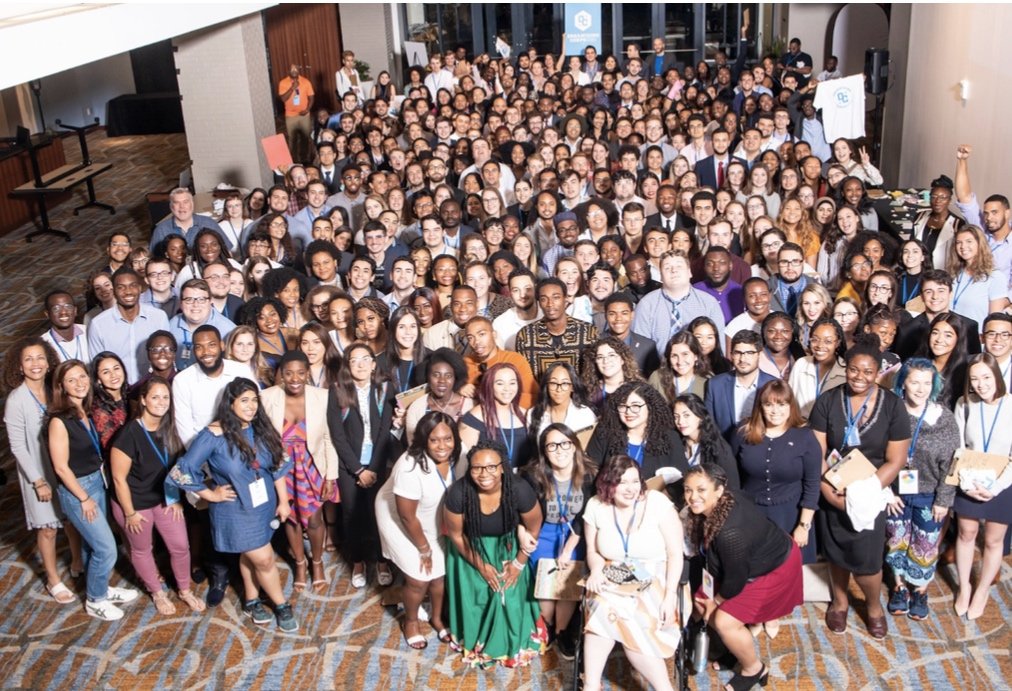The Debate on Campaign Compensation
DNC paid their organizers for the 2020 election cycle as part of their new Organizing Corps program. Source: Organizing Corps 2020
If you received a text, phone call, mailer, or a knock on your door during the 2020 campaign cycle, chances are you met an organizer. Campaigns, from local to national, are massive logistical undertakings. To do the heavy lifting, field organizers are hired to manage volunteer bases in order to maximize voter mobilization. But in many campaigns, young organizers who work seven days a week are underpaid, or not compensated at all.
Part of what makes organizing work so difficult to compensate for is that it is not the typical salaried nine to five job people envision. Recent UNC graduate and organizer for various Democratic campaigns, Nicholas Batman, describes the nuances of organizing work: “I think campaign life really can’t be bounded by hours. It’s the sort of thing that takes a lot of time in and out of school, in and out of life, in and out of the job itself. Job descriptions don’t really capture how much time you’re going to spend on the campaign…it's the sort of thing that bleeds into and becomes ingrained with your normal life.”
Paid political organizing was a rarity before 2020. Out of the major Democratic primary campaigns, President Biden’s was the only operation that began with unpaid internships, despite having mandatory meetings and training sessions for organizing interns. Many campaigns offer academic credit in lieu of salaries or stipends. Other campaigns offer “volunteer fellowships” which give interns the appearance of a title without the obligation for campaigns to offer compensation. Republican campaign organizing pay varies from state to state. In North Carolina, the state’s GOP pays organizers an average of $39,000 per year, whereas the Washington state GOP pays $26,800 per year. But despite the current shift towards paid positions for national campaigns, local campaigns on both sides of the aisle continue to forgo paid organizing positions.
Part of this is due to the fundraising difficulties, and the nature of funding priorities on campaigns themselves. Republican activist and UNC student Joseph Buckner broke down how this complicates paying organizers for their labor, saying, “Money is highly valued in a campaign, it is what connects a candidate to their voting base. It is unfortunate, but money dominates the game now and if you have inspired your followers to help you on your mission as volunteers, the money is better spent in name recognition. I think campaigns see that and will utilize their volunteers and apply their money elsewhere.”
There is an ideological schism between the parties when it comes to the current fight for paid organizing positions. Buckner defended the current system of unpaid organizing, stating, “Individuals on a grassroots level who are passionate will have a higher quality than those in it for a financial motive. While it is important to keep individuals who are good at their job by promoting them and providing them adequate compensation, I believe it’s best for newer individuals to be unpaid.”
However, other organizers such as Batman disagree. “At a high enough level there is no excuse. We’re talking about campaigns that have thousands of dollars to play with and they spend too much of it on other things or just keep it.” He does note that paying organizers is not an option for most small campaigns, stating, “In North Carolina especially, there are some campaigns that are really struggling to keep afloat and that's one of the biggest reasons. An allocation of resources, not knowing how to allocate it effectively, and then struggling to help pay organizers sustainably.”
Regardless of which side of the aisle one falls on, the reality of campaigns is that organizers are often younger, they are students, and they are enthusiastic about getting involved politically. The current campaign system often exploits young people's eagerness to get involved on the campaign trail, gives them tremendous work loads with odd hours and few resources, and then does not adequately compensate them for their time and labor. At any job, that will lead to burn out. Batman describes the campaign environment that continues to defend unpaid organizing, “There is definitely a culture of taking advantage of students who have never done this before and don’t know what the expectations are. You know a lot of the narrative you see online is ‘Well I had to be an unpaid intern for five months so others should too.’ But we have to make it better going forward.” Unfortunately, refusing to pay organizing interns turns a lot of people who do not have the means to work unpaid away from campaign work, narrowing the talent pool and allowing only independently wealthy people to get involved. Further it has the effect of disillusioning people with what is otherwise rewarding work, and politics in general.

